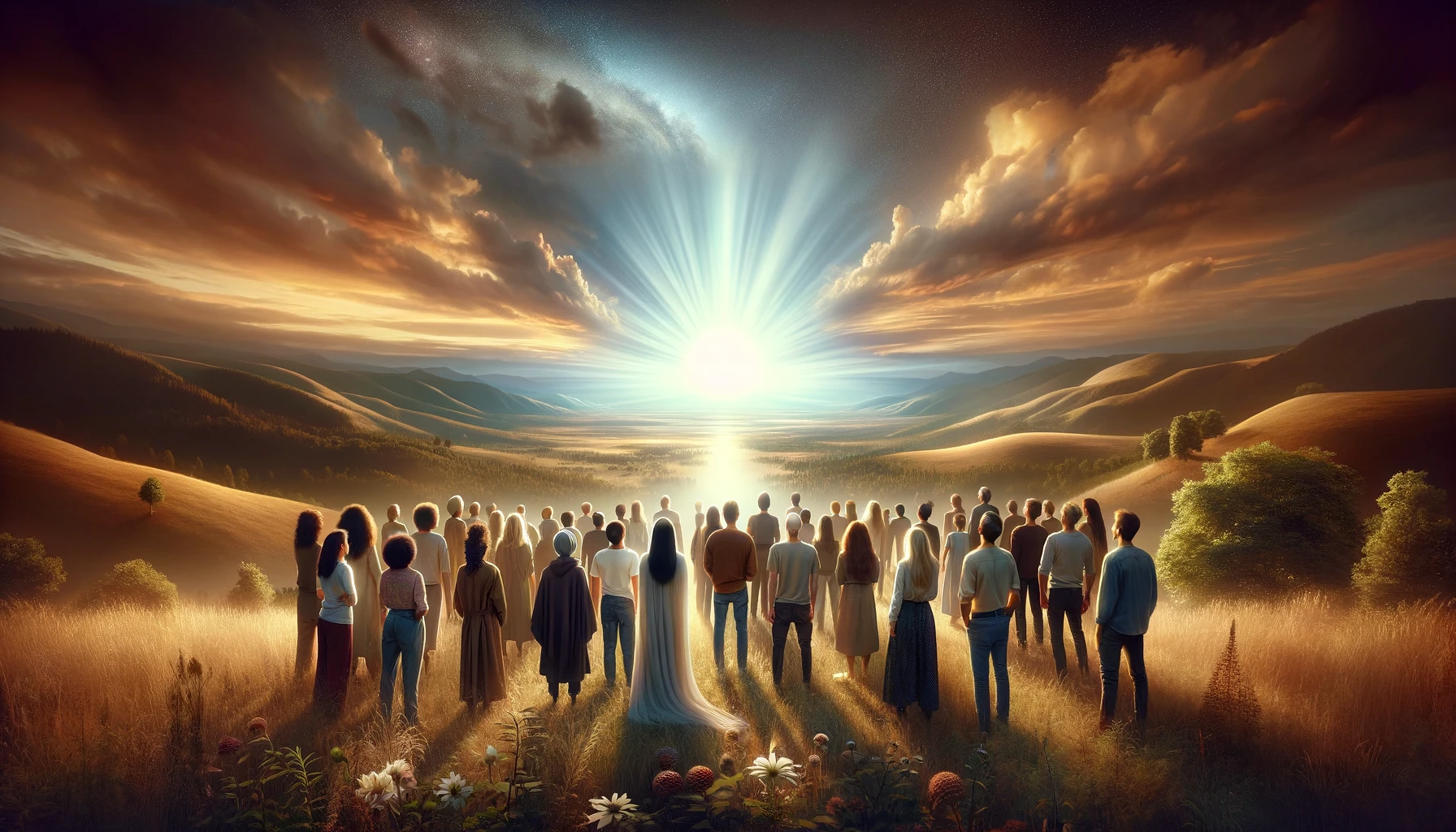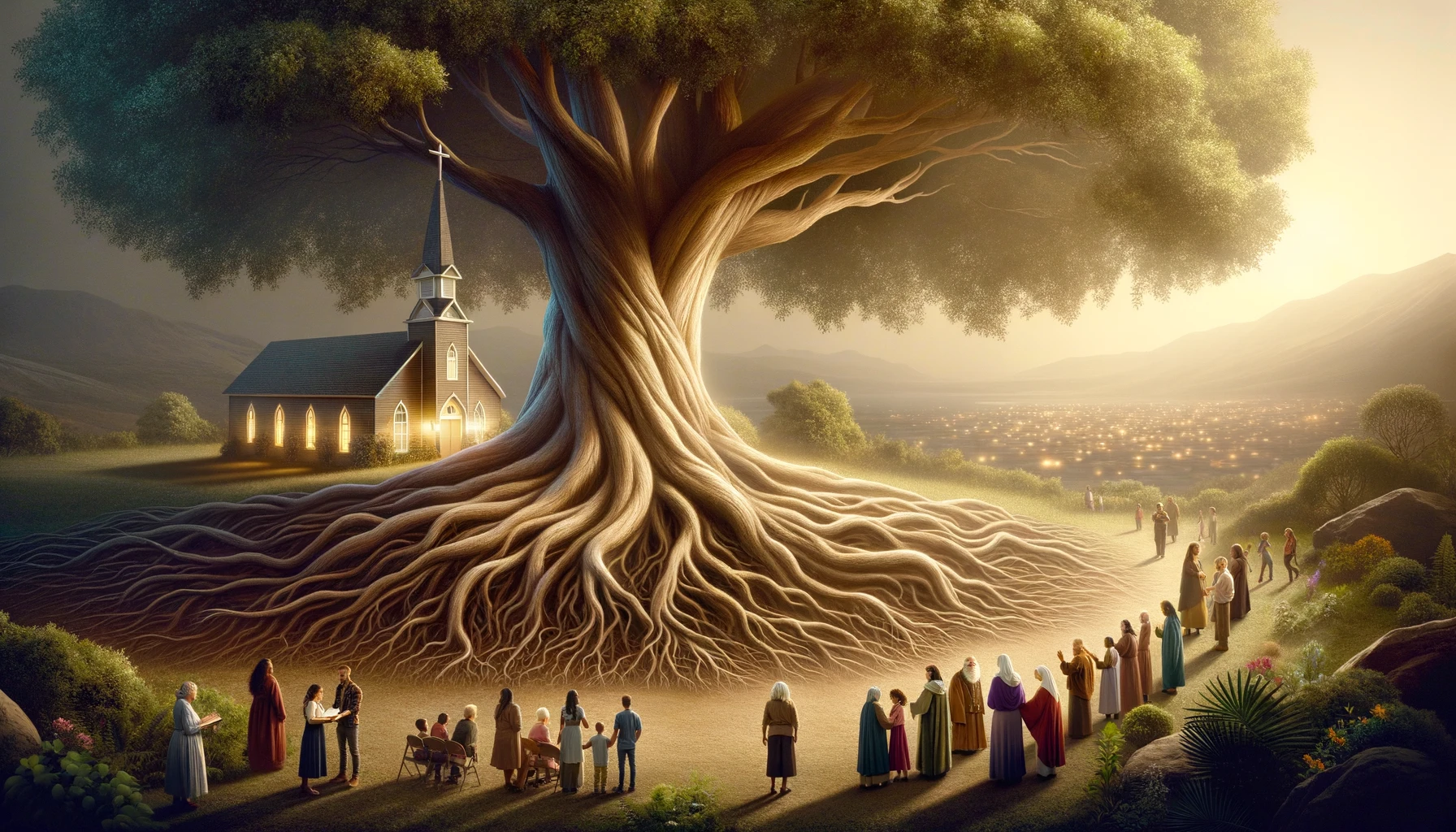When we talk about the end of the world in Christianity, the “Rapture” is a term you might have heard a lot. It’s this idea that, before things really get bad on Earth, believers in Jesus will be suddenly taken up to heaven, leaving everyone else behind.
But did you know this idea wasn’t always part of Christian beliefs? Let’s dig a bit deeper into where it came from and what early Christians thought about the end times.
Where Did The Idea Come From?
The Rapture, as we talk about it today, can be traced back to a man named John Nelson Darby in the 1830s. Keep in mind, Darby lived almost 2,000 years after Christ. On the timeline of history Darby is closer to us than to Jesus and the early church.
Darby was an influential figure in the Plymouth Brethren movement in England. He introduced the idea of “dispensationalism.” This view divides history into different periods or “dispensations,” where God interacts with humanity in specific ways. According to Darby, the Rapture was a new revelation, a separate event from the Second Coming of Christ, where believers would be taken to heaven before a period of tribulation on Earth.
Darby’s ideas got a big boost in the United States and became widespread through the Scofield Reference Bible, published in 1909. This Bible, with notes explaining passages from a dispensationalist viewpoint, made the concept of the Rapture accessible to a wider audience.
What Have The Majority of Christians Throughout History Believed?
This was a shift from what many Christians believed for centuries. Before Darby, most Christians didn’t expect a Rapture as an escape from tribulation. They believed in Christ’s return, but this was more about God making everything right—restoring and renewing the world, not pulling believers out of it.
Historical Christianity sees Jesus as a restorative figure. In His first coming, He restored the souls of men that were broken by sin. In His return, He comes to restore the creation itself, which was broken by the curse of sin. This is consistent with the person of Jesus, who faced the issues of his day head on. He didn’t run.
So, why does this matter? Understanding where the Rapture idea comes from helps us see it’s not the only way Christians have thought about the end times. For most of church history, believers looked forward to a future where Jesus comes back to fix what’s broken in the world, bringing justice, peace, and healing.
Jesus is restorative. He is concerned with restoring mankind and with restoring creation. Much like when He came the first time, Jesus is coming the second time to restore and to rebuild, not to judge and condemn.
Rapture theology changes this and leads believers into a belief system that lacks empathy. If Jesus is going to rescue His people and then the world is going to suffer, then believers have no reason to value the world. They don’t have to care about its people they don’t have to take care of the environment, and they are no longer the stewards of God’s creation.
But if Christ is returning to rebuild, and to restore, it is the Church’s responsibility to prepare the way for Him by rebuilding and restoring what we can until He returns. If Jesus is a restorer, we must care about the environment, we must be stewards of creation, and we have to care deeply about those outside the church — not as souls to be saved — but as people who need love.
The majority report of the church throughout time is not dispensationalism. The majority report of the church throughout time didn’t include the idea of a rapture.
Looking through a more historical perspective shifts the focus from escaping the world to engaging with it. Instead of waiting for a rescue out of the blue, it calls Christians to live out their faith by making a difference in the world here and now. It’s about showing love, seeking justice, and caring for others, reflecting the hope of a future where God makes everything right.
Rediscovering these roots doesn’t just change how we think about the end times; it can change how we live every day. It reminds us that the Christian hope is not about leaving Earth behind but about the promise of a renewed world where God’s presence fills every corner. It encourages us to be part of bringing that future into the present, living in a way that reflects the ultimate renewal that is to come with Christ’s return.
Think about it this way. Would the Jesus who called His disciples to be salt and light on Earth. To be water to the thirsty on Earth. To be the bread of life on Earth. Would that same Jesus — evacuated His followers and then destroy everything He called them to be and to build?
As Jesus restored your soul, He calls you to restore all that is broken in the world. If you follow Christ, you are here to love. You are here to restore. You are here to bring goodness and light to the world that Christ intends to restore.
Discover more from Jesus Quest
Subscribe to get the latest posts sent to your email.



